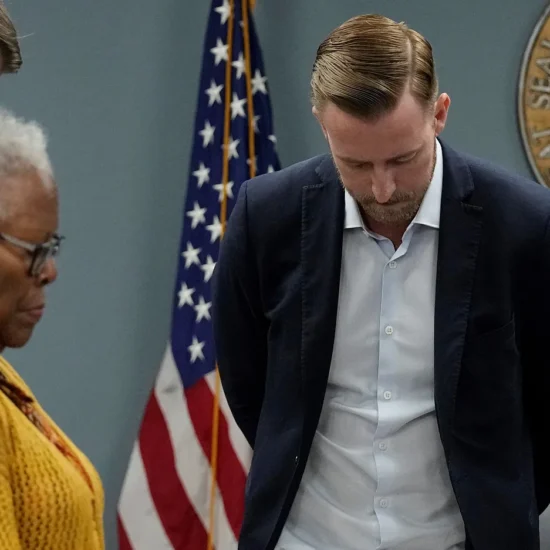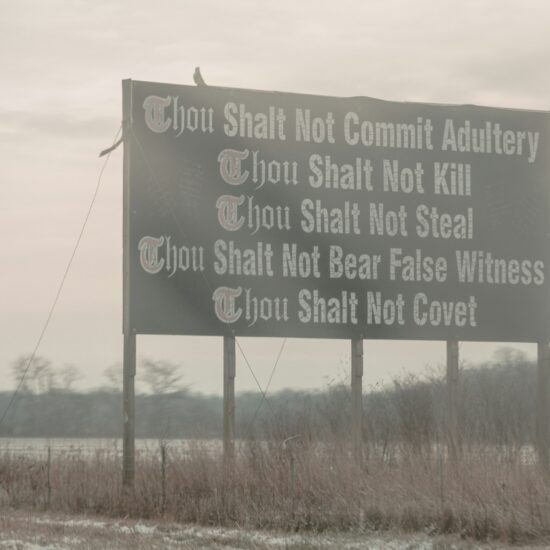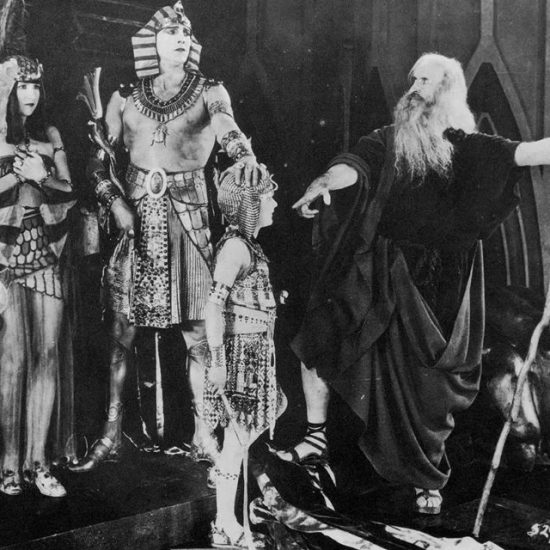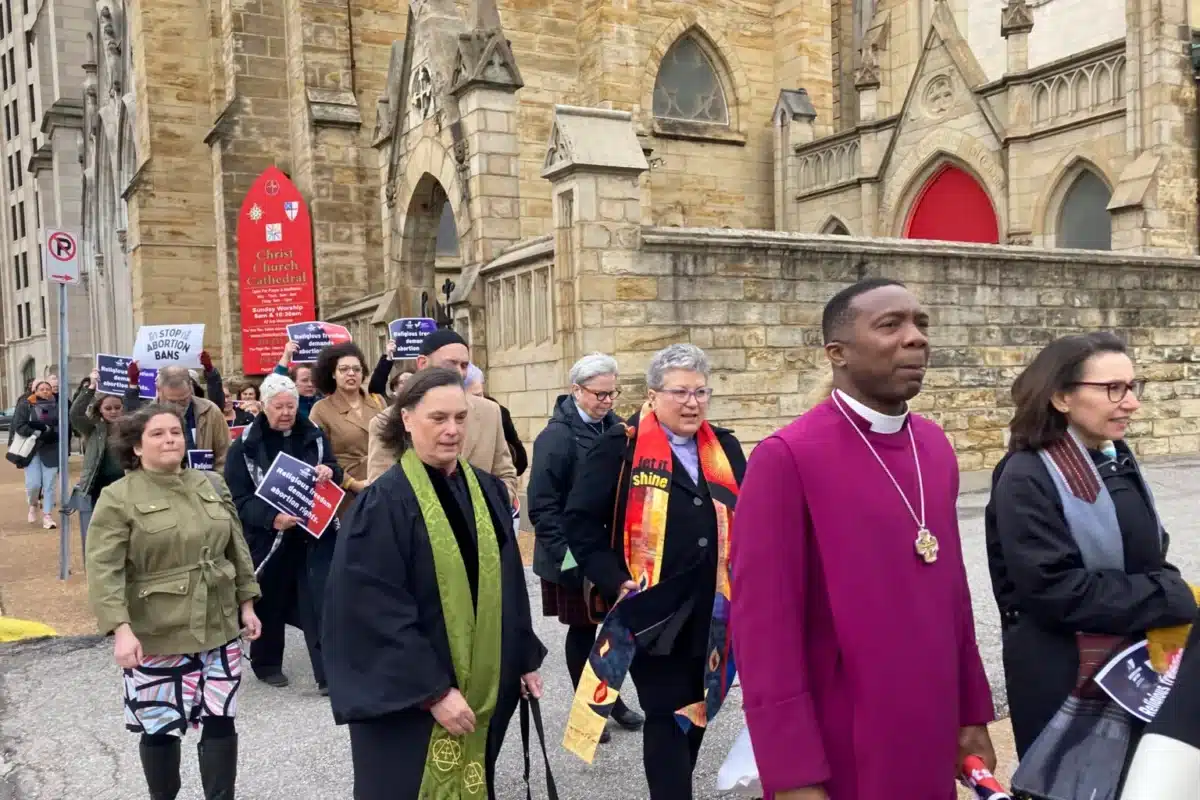
(RNS) — A Missouri judge has rejected a clergy-led effort to halt the state’s near-total abortion ban, rebuking the faith leaders’ claim that the law violates the state’s constitution by imposing the religious values of one faith tradition on all residents of the state. The law permits abortions only for medical emergencies and makes no allowance for pregnancies that result from rape or incest.
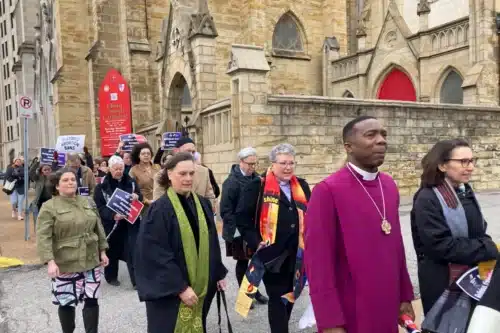
FILE – Clergy who filed suit seeking to overturn Missouri’s abortion law and other opponents of the law hold a March through downtown St. Louis on Thursday, Jan. 19, 2023. (AP Photo/Jim Salter, File)
In an order filed on Friday (June 14), St. Louis Circuit Court Judge Jason Sengheiser addressed an overtly religious section of the law, one of several “trigger” bills in states that went into effect after the U.S. Supreme Court overturned Roe v. Wade in 2022.
“In recognition that Almighty God is the author of life, that all men and women are ‘endowed by their Creator with certain unalienable Rights, that among those are Life … ’” the law reads, repeating language in the Declaration of Independence.
The law was challenged in January of last year by a coalition of 14 Christian, Jewish, and Unitarian leaders with legal assistance from Americans United for Separation of Church and State and the National Women’s Law Center.
“State officials have weaponized their religious beliefs to control the bodies and deny the autonomy of women and all who can become pregnant, jeopardizing their health, lives, and futures,” read the faith leaders’ initial complaint.
The faith groups insisted that some religions require access to an abortion, and that the Missouri law imposes the beliefs of one religious tradition on others.
But Sengheiser did not agree, arguing the phrasing is “similar” to other legal documents, such as the Missouri Constitution, which refers to the “Supreme Ruler of the Universe.”
“While the determination that life begins at conception may run counter to some religious beliefs, it is not itself necessarily a religious belief,” Sengheiser wrote.
He later added: “As such, it does not prevent all men and women from worshipping Almighty God or not worshipping according to the dictates of their own consciences.”
Sengheiser also argued that the law does not rely on religion when contending that life begins at conception, with the statutes in question referencing medical arguments instead of theological ones.
“The Court does not accept Petitioners’ argument that the determination that human life begins at conception is strictly a religious one,” Sengheiser wrote.
Representatives for the faith leaders’ legal team voiced frustration with the judge’s decision.
“We respectfully disagree with the court’s decision, and will be discussing next steps with our faith leader clients,” read a statement from Americans United attributed to the faith leaders’ legal team. “Missouri’s abortion ban is a direct attack on the separation of church and state, religious freedom, and reproductive freedom. Missouri lawmakers made clear that they were imposing their personal religious beliefs on all Missourians when they enacted these laws.”
Rachel Laser, head of Americans United, was defiant.
“Missourians should take this decision as a wake-up call about the importance of this ballot measure,” she said in a statement. “But our case isn’t done and could also overturn the ban. Judge Sengheiser’s opinion makes clear that he thought the case was a close call and ‘presents an extremely difficult question.’ But voters could answer all those difficult questions and restore reproductive and religious freedom in Missouri by passing the ballot measure.”
The faith leaders have the option to appeal or file a motion for reconsideration, although it was not immediately clear whether they intend to do so.
In their initial complaint, plaintiffs noted that in addition to the text of the law itself, lawmakers made religious arguments while debating the bill ahead of its passage.
The lawsuit is one of several challenges based on faith claims that have been filed across the country in the aftermath of Dobbs v. Jackson, the case that overturned Roe v. Wade. Some have encountered obstacles, but others have found at least some success: In April, the Indiana Court of Appeals upheld a lower court’s injunction on that state’s near-total abortion ban, arguing in support of five anonymous residents and Hoosier Jews for Choice who said the ban enshrined one form of faith over others by elevating a specific definition of when life begins.
The legal battles highlight the wide spectrum of religious views on abortion and the question of when life begins. For example, whereas some conservative Christians argue abortion is tantamount to murder, others have long disagreed or forwarded a more nuanced position, and many Jewish Americans argue their tradition permits and sometimes requires abortion when the life or health of the mother is at risk.

